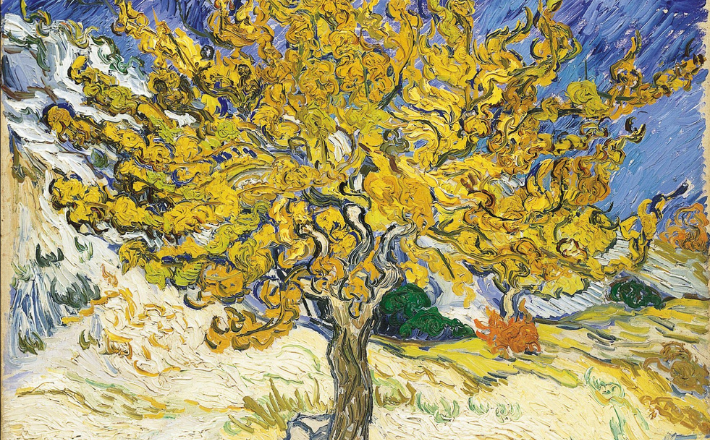Commentary on Luke 17:5-10
The mission of Jesus in Luke’s Gospel brings the reigning activity of God up close. It’s not just about some future setting things right; it also concerns household life and social relations, for these too are arenas where the saving impact of God’s reign can be felt.
In the passage that precedes today’s lection, Luke 17:1–4 gives a more compact version of Jesus’ teaching on accountability and mercy in Matthew 18.1 The disciple community is responsible for its treatment of the vulnerable (“these little ones,” Luke 17:2).
What’s more, Jesus insists that when a community member engages in misconduct, both repentance—a prominent motif to this point in Luke’s Gospel (for example, 5:32; 10:13; 11:32; 13:1–5; 15:7, 10; 16:27–31)—and forgiveness are essential (17:3–4). As long as the wrongdoer repents, the offended party is urged to extend mercy—as many as seven times in a single day!2 Of course, it is scarcely imaginable that repentance, if repeated over and over again, would be genuine and therefore would justify the offer of forgiveness.
When harm is done, forgiveness may not come easily. The disciples apparently recognize their need for help if they are to fulfill this expectation. So, with one voice, the apostles petition for increased faith (verse 5).
Mustard-seed faith, take two
Enlarge our faith? Jesus answers the request of his apostles with hyperbole, with an exaggerated assertion of the sufficiency of even a small amount of faith: “If you had faith the size of a mustard seed, you could say to this mulberry tree, ‘Be uprooted and planted in the sea,’ and it would obey you” (verse 6). Luke’s readers have already encountered the mustard seed as a parabolic image of God’s reign (8:18–19), although in that parable Jesus does not mention the seed’s diminutive size (in contrast to Mark 4:30–32; Matthew 13:31–32).
In the 21st century, we may have less interest in replanting trees in the ocean than in even more improbable feats like ending international conflicts, or poverty and hunger, or racism and xenophobia, or—perhaps most urgent of all—reversing global warming. Would faith of mustard-seed scale move us to bold action, even when the prospects of success seem so slight?
We need faith that, despite the evidence of sight and sound, what we do matters; that we can make a difference for good; that God isn’t done with this world just yet. Perhaps the key is not the size of faith but its tenacity and durability (see also Luke 18:8b). We might do well to join the apostles’ plea for more robust faith, and add to it a resolve to embody our faith in persistent, courageous action.
It’s your job!
Speaking of action, the mini-discourse now pivots to duties within the household. Here Jesus assumes existing social structures within the Roman Empire, in which slavery was basic to social and economic relations.3 The passage graphically displays the imbalance in power relations within first-century households:
Who among you would say to your slave who has just come in from plowing or tending sheep in the field, “Come here at once and take your place at the table?” Would you not rather say to him, “Prepare supper for me; put on your apron and serve me while I eat and drink; later you may eat and drink”? Do you thank the slave for doing what was commanded? So you also, when you have done all that you were ordered to do, say, “We are worthless slaves; we have done only what we ought to have done!” (verses 7–10)
These verses assume that enslaved persons owe their enslavers obedient performance of their assigned duties. Verses 7–9 draw on this social reality by posing a rhetorical question: “Who among you … ?” That is, which person of superior status and privilege would dare to flip the script, serving rather than demanding loyal service?
The distorted power relations depicted in this passage were commonplace in Luke’s world; though familiar, they are, however, disturbing. This is an exploitative system that people and communities of faith must not replicate or sanction today. It remains a pressing concern, in light of the sobering realities of human trafficking and the trampling of human rights of so many marginalized and vulnerable persons on a global scale. Jesus’ call to protect the vulnerable, earlier in chapter 17, already presses against such an oppressive system (verses 1–2).
Indeed, which person of superior status would flip the script? Reading ahead in Luke’s Gospel, we learn the answer: Jesus himself! He later presents a radically different picture of what it means to have power and what it means to serve. In his farewell speech to the disciples (22:14–38), he offers himself—as a person of superior status who is entitled to be served—as the very one doing the serving. His followers are to emulate that model, rather than conform to the usual quest for superior position and power (22:24–27). Persons and communities of faith are called to obedience of a different kind, serving the One who alone is sovereign.
Notes
- These verses in Luke also rework Mark 11:22–25, which pictures faith as able to relocate mountains (rather than trees as in Luke 17) and, as in Mark, adds a call to forgive. Mark places the teaching within the scene featuring a fruitless fig tree, an episode Luke omits.
- Matthew’s version of this teaching embeds it in an exchange between Peter and Jesus, in which Jesus calls for forgiveness as many as 77 times (or 70 times seven), without mention of repentance (Matthew 18:21–22).
- On slavery in the Greco-Roman world and in early Christianity, see Jennifer A. Glancy, Slavery in Early Christianity, Expanded Edition (Minneapolis: Fortress, 2024).



October 5, 2025